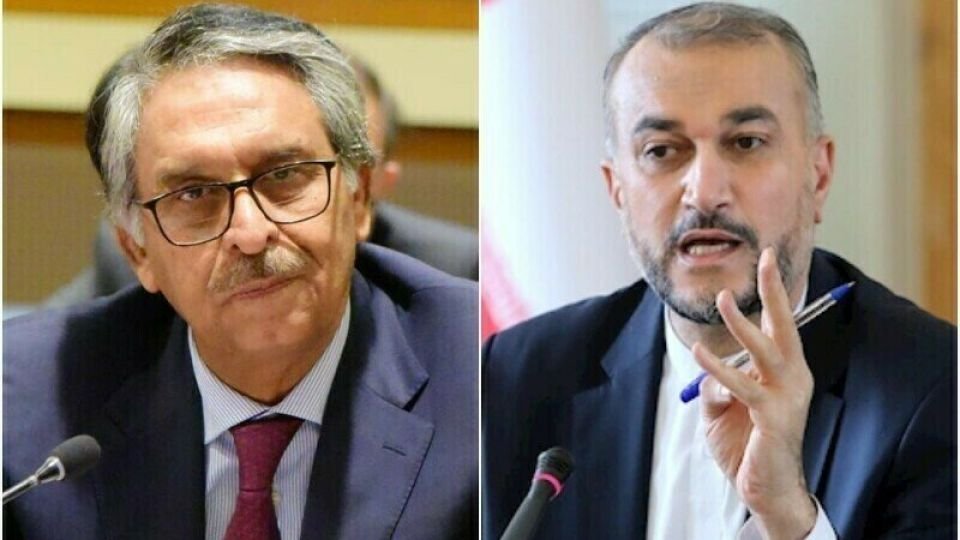Islamabad, 23 January 2024 (TDI): Iran’s Foreign Minister will pay a visit to Pakistan in the upcoming week denoting a significant development in bilateral relations. The two countries have also pronounced the date for the return of ambassadors of their respective sides.
Pakistan had called back its ambassador from Iran following the January 16th violation of Pakistan’s sovereignty by Iranian security forces. Subsequently, Pakistani authorities also informed Iranian ambassador to Pakistan, who was on a visit to Iran, to not return for the time being.
In addition, Pakistan also suspended all high-level visits including both, which were ongoing or were planned between Pakistan and Iran in coming days.
The spokesperson for the Ministry of Foreign Affairs of Pakistan stated that after a telephone conversation between the Foreign Ministers of Pakistan and Iran, both parties mutually agreed to facilitate the return of Ambassadors to their respective capitals.
Pakistan and the Islamic Republic of Iran in a joint press statement, confirmed that the ambassadors of both states may return to their respective posts by 26th January 2024.
Furthermore, Foreign Minister, Jalil Abbas Jilani, invited Foreign Minister of the Islamic Republic of Iran, Hossein Amir Abdollahian to Pakistan. Upon the invitation the Iran’s Foreign Minister will undertake a visit to Pakistan on 29th January 2024.
Foreign Ministers’ phone call
Earlier on Friday, Foreign Minister Jalil Abbas Jilani engaged in a telephonic conversation with the Foreign Minister of Iran, Hossein Amir Abdollahian.
While underscoring the close brotherly relations between the two countries, the Foreign Minister Jilani expressed Pakistan’s desire to work with Iran. He added that relations between the two countries would be based on spirit of mutual trust and cooperation.
In particular, the Foreign Minister stressed that respect for territorial integrity and sovereignty must underpin this cooperation.
During the phone call, both Foreign Ministers agreed that working level cooperation and close coordination on counter terrorism and other aspects of mutual concern should be strengthened.
Furthermore, both agreed to further de-escalate the situation. The return of the ambassadors of the two countries to their respective capitals was also discussed during their conversation.
Pakistan-Iran crisis: confrontation to conversation
On 16th January 2024, Iran carried out attacks inside Pakistani territory using precision missile and drone strikes. The strikes were aimed to destroy two strongholds of the militant group Jaish al Adl in the province of Balochistan.
Consequently, Pakistan termed the strike by Iran as blatant breach of Pakistan’s sovereignty and violation of international law. It also warned that the responsibility of consequences will lie squarely with Iran.
According to the deputy commissioner of Panjgur, the attacks in the village of Koh e Sabz, about 60 kilometers (about 37.28 mi) from Pakistan’s border with Iran, damaged a house which resulted in death of two innocent children while injuring three girls.
In response, Pakistan undertook a series of highly coordinated and specifically targeted precision military strikes against terrorist hideouts in Siestan-o-Baluchistan province on Iran.
According to the military spokesperson, the intelligence-based military operation, codenamed ‘Marg Bar Sarmachar,’ resulted in the killing of several terrorists. The attacks targeted terrorists in the ungoverned spaces inside Iran.
The military targeted hideouts used by terrorist organizations, namely Balochistan Liberation Army (BLA) and Balochistan Liberation Front (BLF). The strikes involved the use of killer drones, rockets, loitering munitions, and standoff weapons.
Discussion on Iran situation
Prime Minister of Pakistan, Anwaar Ul Haq Kakar, presided over two important meetings, including the meeting of National Security Committee followed by the meeting of Federal Cabinet which evaluated the recent situation with Iran.
ALSO READ: Prime Minister Kakar chairs meetings on Iran situation
The meetings reiterated an unyielding commitment to the absolute inviolability and sacredness of Pakistan’s sovereignty and territorial integrity. It affirmed that any attempt by anyone to breach it on any pretext would be met with the full might of the state.
Lastly, the meetings concluded in line with the universal principles governing the conduct of good neighbourly relations with each other, the two countries would mutually be able to overcome minor irritants through dialogue and diplomacy.
Abdul Momin Rasul is a contributing author on TDI



